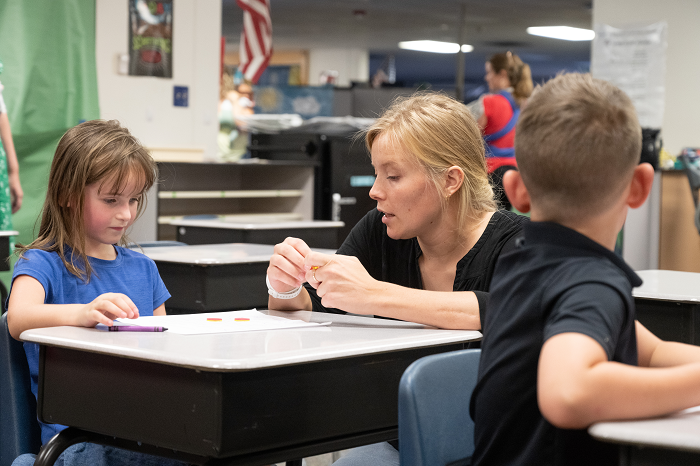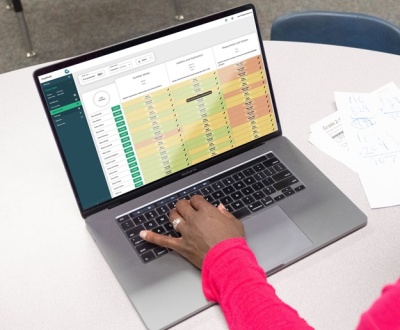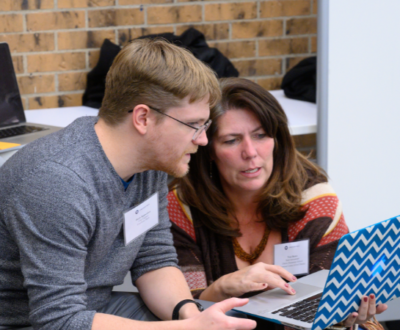Math Screeners in an RtI/MTSS System
- February 16, 2022
- Blog

“RtI begins with high-quality instruction and universal screening for all students.”
IES Practice Guide, US DOE, 2009
It is a great trend to see RtI and MTSS practices adopted more widely across the United States. These practices help ensure that students get the behavioral and learning supports they need to be successful. They are also an essential component of equity in education. To quickly and accurately identify students that may need these supports, universal screening is the cornerstone of an RtI/MTSS implementation.
Universal Screeners
Screeners are quick assessments that help to identify skills and concepts that indicate readiness for grade level content. They also help identify students who would benefit from additional supports. Administered 1 to 3 times a year, teachers, interventionists and specialists, instructional coaches, and building and district leaders can all use screening assessment results.
Universal screening can:
- Reveal readiness for instruction that might otherwise go unnoticed.
- Help teachers respond to student needs through targeted individual instruction, as well as small and whole group instruction.
- Monitor the efficacy of core instructional materials.
- Identify pockets of need where additional resources should be directed.
- Monitor progress on key indicators over time.
- Direct teachers to areas where diagnostic assessments would be helpful.
Math Screening Tools
Depending on the type of assessment used, the level of detail provided to teachers for guiding instructional and programmatic responses varies widely. Evidence that points to specific skills and concepts that students struggle is most helpful for teachers to develop plans for targeted instruction. Universal screeners that only identify which students are at risk of struggling are less useful.
Additionally, there are math assessment systems that were previously labeled as benchmark and interim assessment systems that are now repurposing their products as screeners. These include NWEA MAP, FastBridge, DIBELS, and Star Assessment. What is the difference between these and helpful screening assessments?
Screening assessments that are the most helpful focus on essential mathematics understandings. Seminal research and guidance related to screeners, and the theoretical impetus for their usage point to the need for identifying, targeting, and assessing the most critical skills. This contrasts with many math screeners on the market that are general assessments of mathematics ability.
The Universal Screeners for Number Sense
The Universal Screeners for Number Sense focus on the most critical skills and concepts necessary for success in mathematics. They inform prompt, timely instructional responses without the need for additional assessment.
In high-functioning RtI/MTSS systems, universal screeners do much more than provide benchmarks and percentile rankings. They also:
- Provide starting points for intervention or further assessment.
- Inform prompt, proactive, and preventative responses to support student success.
- Help monitor strengths and areas for improvement in Tier 1 instruction.
- Can help inform Tier 2 and 3 interventions and progress monitoring.
If you would like to improve your RtI/MTSS systems today, introduce quality screening tools in your schools. Download your free copy of the K-5 Universal Screeners for Number Sense here and connect with our team to learn more about how to implement a successful universal screening program for math.
About the author:
David Woodward is an educator with more than 25 years of experience in education as a classroom teacher, a district leader in math education, and a frequent presenter at conferences nationally. He founded Forefront Education to help educators better understand student learning with classroom assessments and support standards-based grading that is automatic, accurate, and reliable. David retired as a math coach at Boulder Valley School District in Colorado in June 2020. He is the leader of the Universal Screeners for Number Sense project (formerly known as the BVSD k-5 Math Screeners) a series of open-source assessments. Read more.
About us and this blog
Our team and tools help schools implement standards-based grading, streamline assessment systems, and use meaningful data to drive decision-making.
Webinar: Screeners in an RtI/MTSS System
Watch how number sense screening can strengthen your RtI/MTSS system with David Woodward, lead author of the Universal Screeners for Number Sense project. Access the webinar presented on February 23, 2022, at 12:30 pm EST below.
More from our blog
See all postsForefront is the only assessment data solution optimized for classroom assessment results, leveraging these results to fuel instruction, PLCs, and grading. Elevate meaningful assessment data district-wide to transform how you understand and communicate about student learning across your schools.
Copyright © 2025 Forefront Education, Inc. All Rights Reserved.







